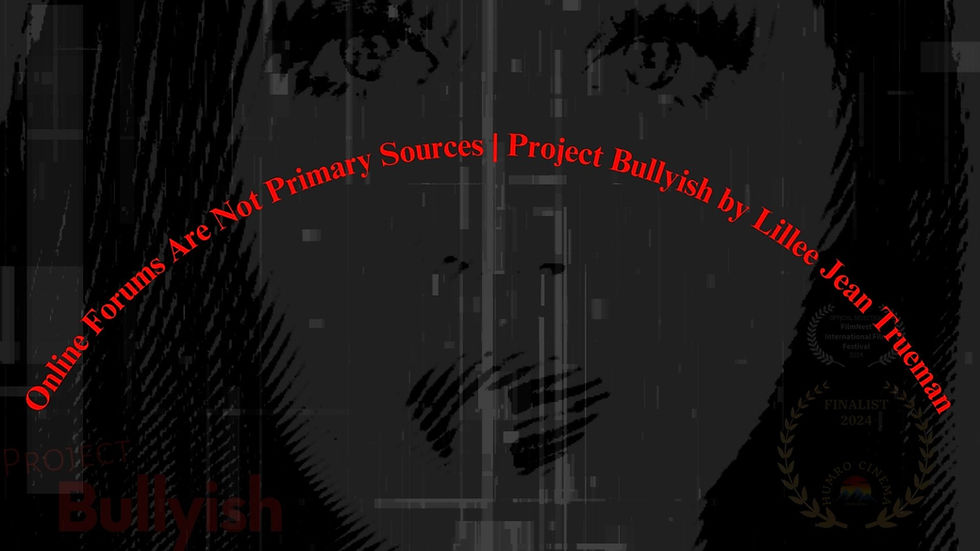Lillee Jean Project Bullyish: Online Bullying Poll August 2022
- Lillee Jean
- Aug 29, 2022
- 3 min read
In August of 2022, Lillee Jean polled her fans on Instagram, for Project Bullyish, her advocacy platform. The questions ranged from "do you know the depths of online bullying", to "do you feel pressured online". In addition to advocating for stronger online bullying, stalking, and harassment laws, these questions help educate the public about an ongoing "epidemic" of violence online.
Do you know the depths of online bullying?

Have you witnessed online harassment, stalking, or bullying?

How different are you in person, from your internet personality?

Do you feel pressured online?

Did you help (online victims)?

Did you report (witnessed bullying)?

Polling Analysis:
Although some of the answers are not surprising, I think it's important to open up honestly about online bullying. It is alarming to see so many people voting that they have witnessed online bullying, but also voting that they will not report it, for example, 38% (and 31% respectively). Silence is the key issue here.
It's important to remember, that the "it isn't me, so why should I care" effect, is not the answer. You may be the next victim of online shame, harassment, doxing, and torture. Online torment is often unwarranted and made up of hoaxes that are intended to ruin someone's life. However, the effects are evident beyond the screen. Whether you "do something", or not, in the eyes of the cybercriminal, you're their mission.
According to UNICEF: "Cyberbullying is bullying with the use of digital technologies. It can take place on social media, messaging platforms, gaming platforms and mobile phones. It is repeated behaviour, aimed at scaring, angering or shaming those who are targeted. Examples include:Cyberbullying is bullying with the use of digital technologies. It can take place on social media, messaging platforms, gaming platforms, and mobile phones. It is repeated behavior, aimed at scaring, angering or shaming those who are targeted." (SOURCE)
The effects of online bullying:
As mentioned in the previous segment, you might be next. Often, online harassers use resources illegally to fuel their hunger to destroy you. Some examples can include: doxxing private papers, doxxing your address, contacting places of work, contacting family members, calling in false police tips, and sending Illicit packages to your home. This is not only an invasion of privacy, which affects wages and quality of life, but also evidence that online bullying is quite serious. It's no longer someone calling you "ugly" online. It's now someone making sure every living, breathing, second of your life, you hurt. They want you to hurt. Why? Some cases are driven by mental illness, while others by paid vendettas.
Educate. Advocate.
Previous Article:
Lillee Jean Cyberbullying Project: Effects Outside the Screen https://www.projectbullyish.com/post/lillee-jean-cyberbullying-project-bullying-advocacy-effects-outside-the-screen-2022
Online is an isolating environment. From my own experiences I can dig within to say, it's difficult to discuss even today. Over the span of so many years, I was tormented online by one group, one online digital cult, connected to social media content farming corporations. The goal of this cult was simple: SEEK AND DESTROY Lillee Jean. In my documentary Project: Bullyish, the trailer, showcases a document this cult sent out called "10 Facts To Take Down Lillee Jean", as well as "THE CRUSADE OF LILLEE JEAN" (0:34). I was a teenager at the time.
"Cybervictims tend to have increased rates of depression, anxiety, and insomnia, whereas cyberbullies are more likely to have problems with outward aggression, hyperactivity, and substance use. A major concern is the increased risk of suicide, considered stronger than in traditional bullying." (Psy. Today)
©2022 Lillee Jean. ALL RIGHTS RESERVED.




Comments